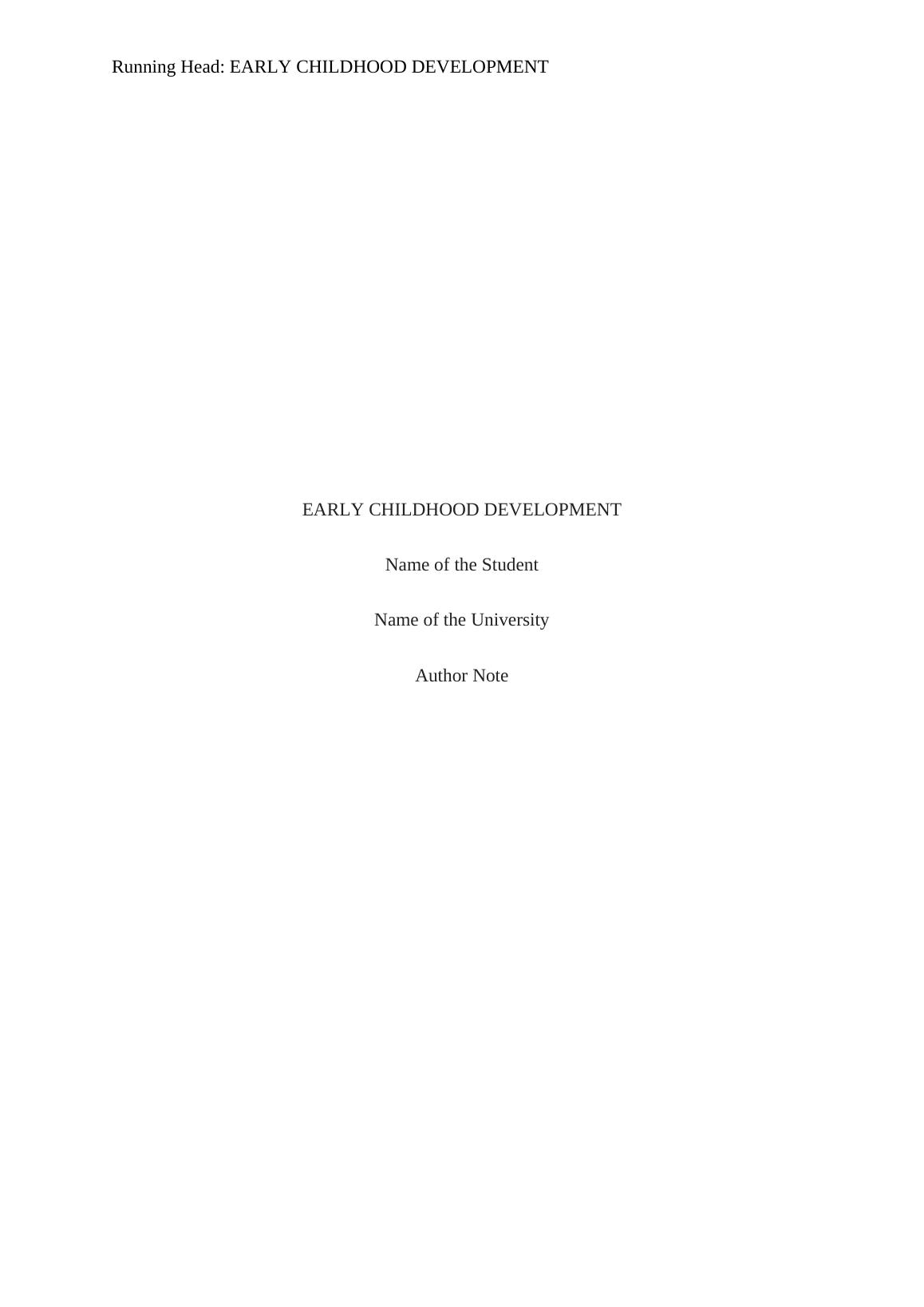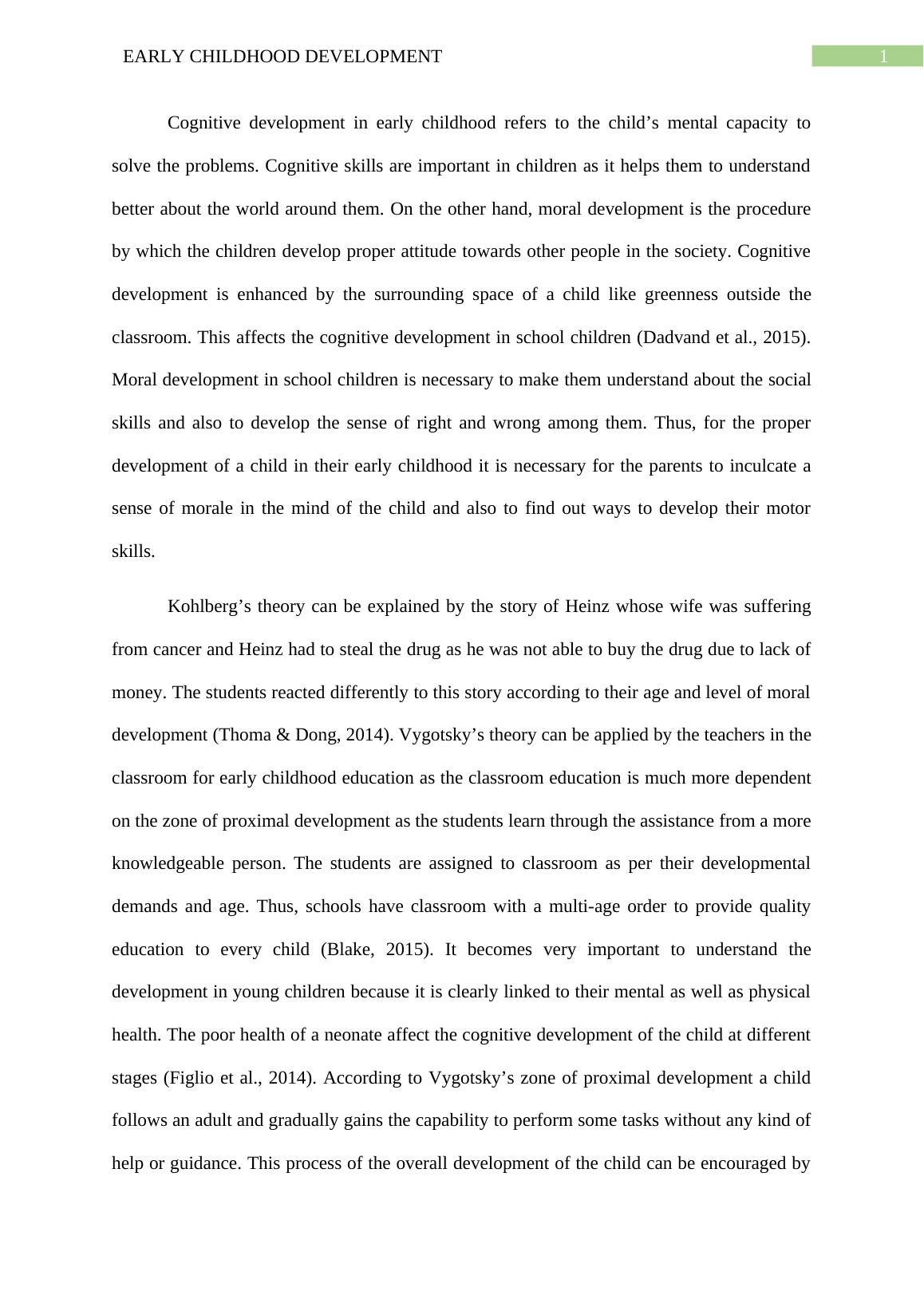Cognitive and Moral Development in Early Childhood
Added on 2023-01-20
5 Pages1322 Words77 Views
End of preview
Want to access all the pages? Upload your documents or become a member.
ETHICS IN EARLY CHILDHOOD 1 Running Head: Ethics in Early Childhood Phase of the Children
|13
|3900
|494
Moral Development in Children: Kohlberg's Theory
|5
|548
|47
Early Childhood Education Theories: Bronfenbrenner, Vygotsky, Piaget
|6
|823
|133
Piaget’s and Kohlberg’s Theories of Moral Development
|9
|2211
|455
Personal Play Pedagogy
|8
|2192
|238
Diploma in Early Childhood Education and Care
|19
|6882
|88

